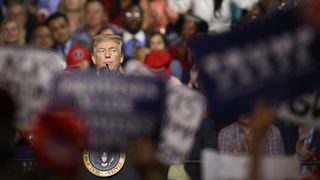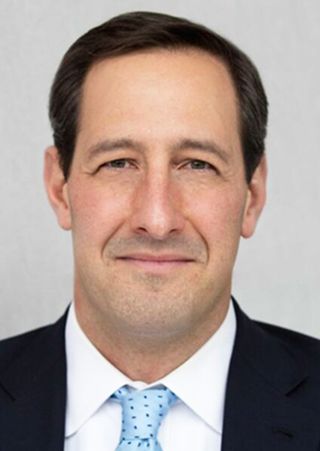Donald Trump's presidency has raised profound questions about the role America will play in the world, and whether his election and his vision of an isolationist America are an anomaly or are indicative of deeper structural shifts in American attitudes about the country's global role.
The upcoming American midterm elections in November will offer the first significant indication.
If Democrats retake the US House or Senate, this may be partly seen as an indication that the American people are seeking a correction on the direction Trump is taking US foreign policy.
What exactly Trump means by "America First," how widely those sentiments are shared, and the debate surrounding the sustainability and wisdom of America's global role are key to understanding the durability of America's global role.
It was during the presidential campaign that Donald Trump began using the phrase "America First," to characterise his view of foreign policy. While "America First" is clearly associated with the isolationist movement that preceded World War II, it is ultimately America's post-war role that Trump continues to question.
Post-war America embraced American leadership, embedded America in a series of security commitments, supported collective defence, worked to restrain arms races, participated in multilateral institutions, promoted trade between countries, championed democracy and human rights, and advocated for the rule of law.
It is this vision that Mr Trump has continuously attacked as a bad deal for America. He has raised questions about America's security commitments, explained trade solely in terms of economic loss, and displayed an indifference to human rights, while expressing admiration for multiple autocratic rulers.
While some of Mr Trump's impulses may be warranted — increasing the US defence budget and a stated willingness to confront adversaries when necessary — the President does not seem willing to engage the world, rally traditional allies, and support democracy against those who would work to undermine it.
America pays a disproportionate share of costs
Mr Trump is not alone in questioning the costs, value, and sustainability of America's role.
Attacking the effects of globalisation, questioning the value of America's security guarantees to its allies, railing against the inefficiency of multilateral institutions, and doubting whether the US can afford nation building efforts abroad, Mr Trump has articulated long-standing critiques.
This argument resonates in the United States because America does pay a disproportionate share of costs to uphold this open, stable, and integrated system.
That is true militarily, in terms of defence appropriations in absolute terms and as a percentage of its overall budget, in terms of subsidising allies who have not been willing to shoulder a larger share of the burden for their own defence, and in paying some of the heaviest costs in response to the outbreak of hostilities.
It is true in an economic sense, by being willing to keep its markets open even to those who have refused to do likewise, moving at the forefront of a globalised economy while enervating the manufacturing sector and displacing American workers, and taking responsibility for global financial stability and liquidity.
And it is true from an institutional sense, where the United States has accepted constraints on its power.
Of course, there are immense benefits that the US derives from this system. But that is not to say that leadership has come without costs.
Australia should expect debate on US leadership
While too soon to tell if this represents a fundamental inflection point for America's post-war international role, it is clear that the terms of the debate have been recast and certain questions will be asked more frequently, and more sharply, in the future — and the United States may see the pendulum swing back towards a more isolationist approach.
Australia and other allies should expect that the debate about America's role in the world will continue beyond the 2018 midterm elections and through the 2020 presidential election.
For friends and allies of the United States who have a vested stake in preserving the rules-based order, there is much that can and should be done.
The more Asian and European allies can do to fund and provide for their own security needs, the more they will be seen as equal partners to the American public, the national security community, and aspiring presidential candidates.
More importantly from their perspective, doing so will increase their influence in Washington and simultaneously allow them to hedge for all possibilities.






